CINAHL Database
The CINAHL Database (Cumulative Index to Nursing and Allied Health) is a top nursing database that allows you to search for articles in hundreds of nursing journals. This section will help you to navigate some of the key functions and features of the database.
How do I access CINAHL?
The easiest way to connect to CINAHL is through the Nursing subject guide. On the subject guide’s homepage, look for the heading labeled Key Databases. Underneath this heading, you will find a list of the most useful databases for nursing. The link for EBSCO CINAHL is located at the top of this list.
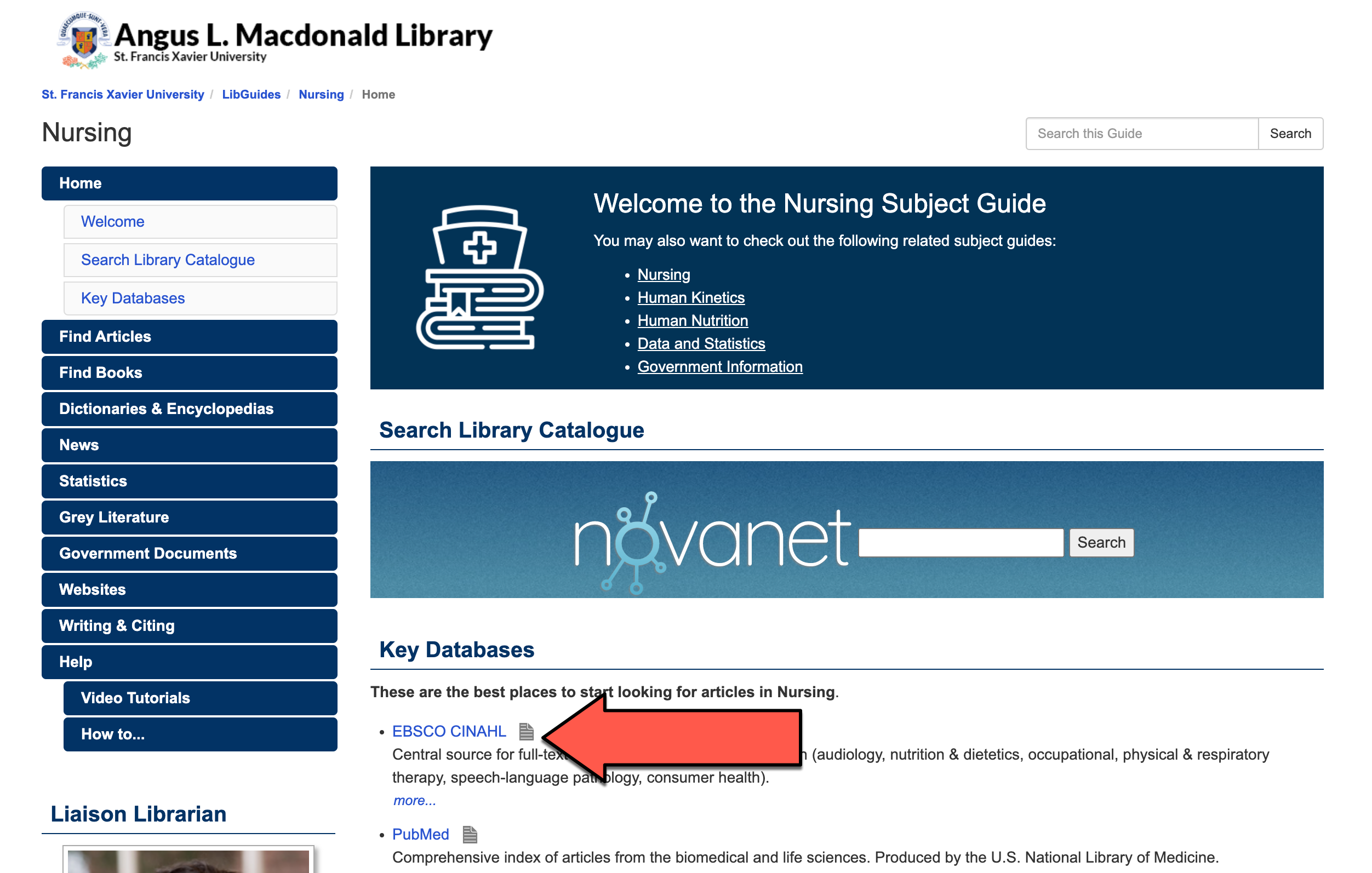
If you are off-campus, you will be prompted to login to the library’s proxy server to authenticate yourself as a StFX user. The login is your StFX email address (without the @stfx.ca), and the password is your email password.
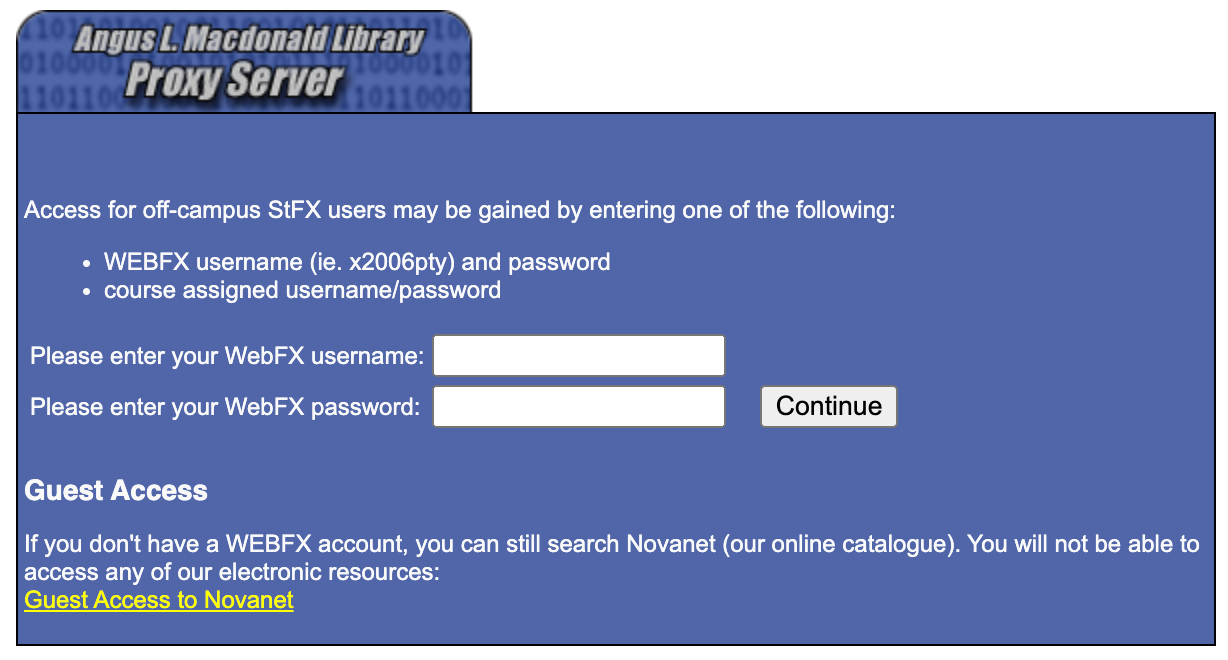
How can I get full-text articles?
There are two ways to access full-text articles in CINAHL:
(1) Once you’ve performed a search, some of the results will include links to full-text PDFs if they are available. Click PDF Full Text to view or download a copy of an article.

(2) If a search result does not have a direct link to a PDF, click on StFX Check for Full Text to search for the article in other databases.

The link resolver screen will then appear. This page provides a number of links to access materials through the library. Click on any of the database links listed under the Full Text (Online) heading to gain access to an article.
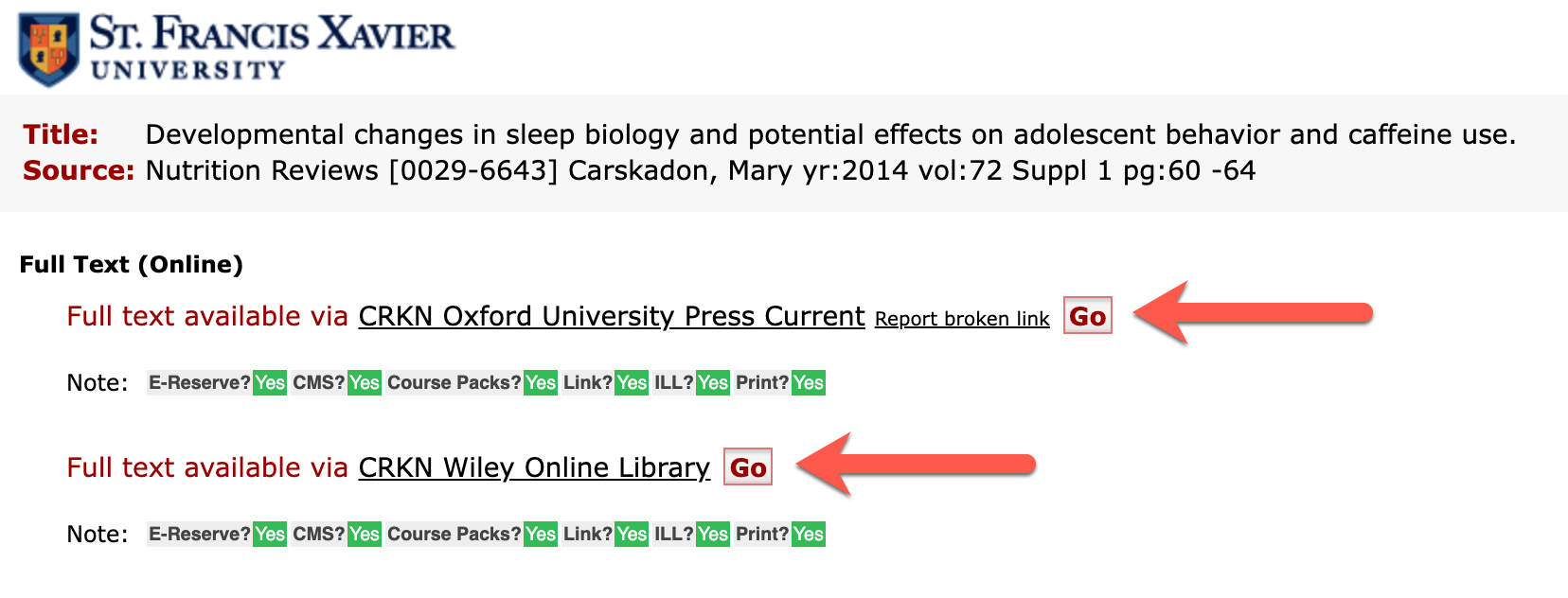
Key Features
Autocomplete Suggestions
When you begin typing a word in a search field, you’ll notice that the database will provide suggestions for a search term or variations on a search term. These suggestions are based on popular searches done by other CINAHL users across the globe, and they can be helpful if you need inspiration for finding additional terms that are relevant to your search.
The example below shows some of CINAHL’s suggested terms when a user begins to type “teenagers” in the search field:
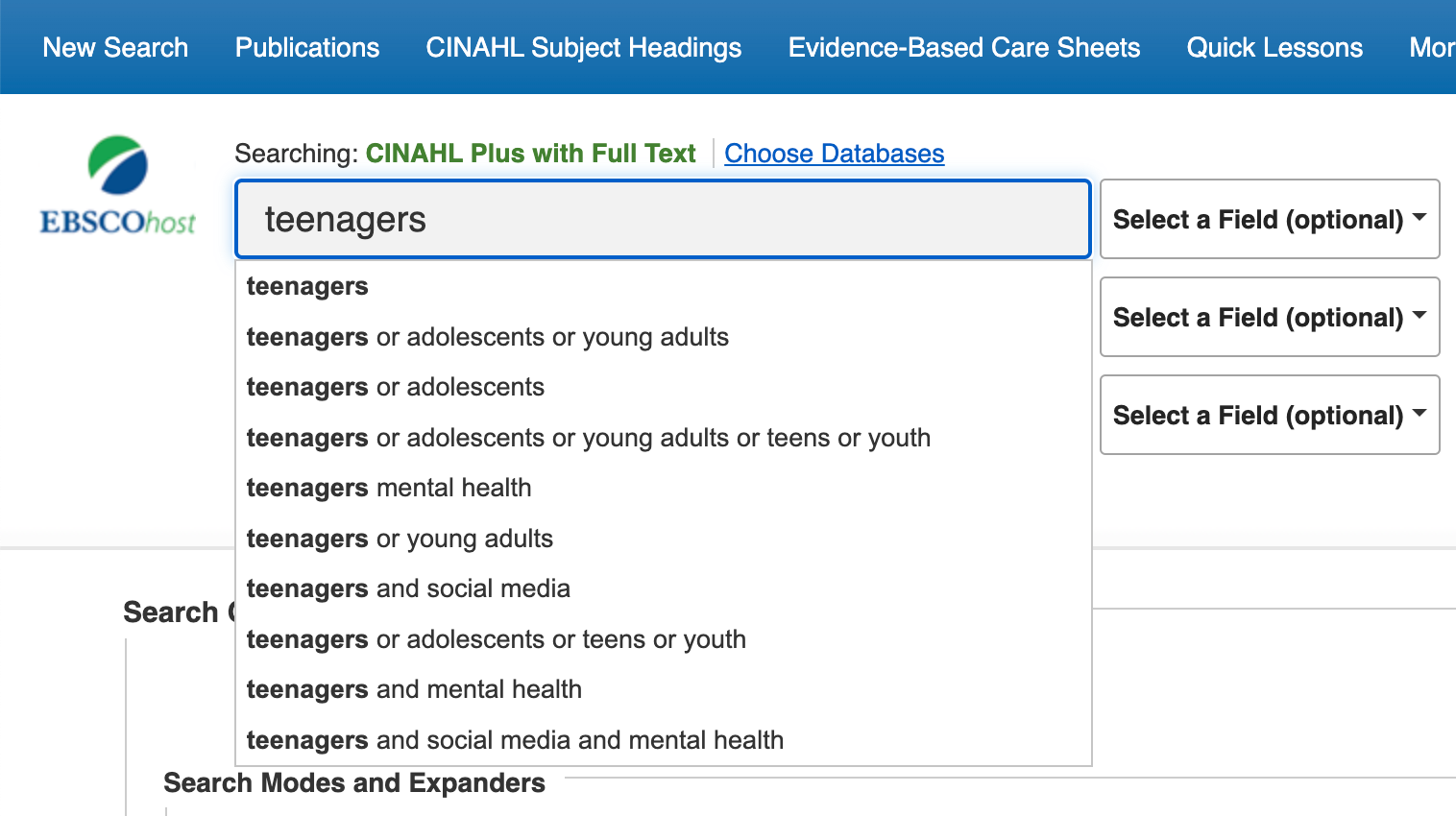
Limiters
Also known as filters, limiters allow you to narrow the focus of your search so that the information retrieved will be limited according to certain criteria you select. Limiters reduce the number of results returned and make the remaining results more likely to be relevant to your research topic. In CINAHL, limiters appear below the search boxes on the Advanced Search screen, and more than one limiter can be applied to any search.
For research assignments, you are often required to choose sources that are both peer-reviewed and recently published (within the last three or five years). Two important limiters that directly address those requirements are
Published Date, which limits your search results to materials published during a certain time period (e.g., anything published within the last five years), and
Peer Reviewed, which limits your search results to materials published in peer-reviewed journals. If you do not check this box, your results will include articles from publications that do not go through the peer-review process.
Both limiters can be found on the right-hand side of the Advanced Search screen, as highlighted in the screenshot below:
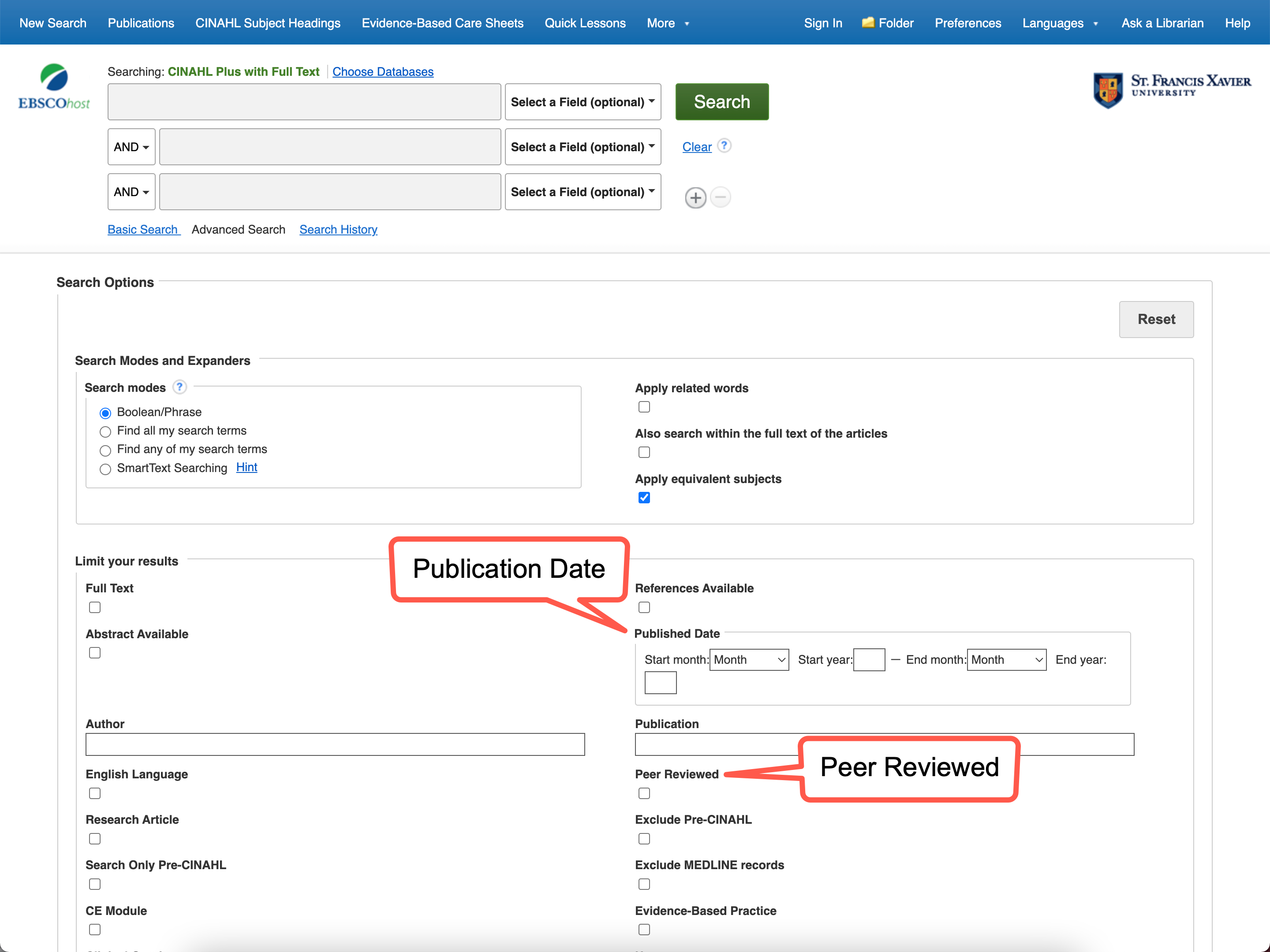
CINAHL offers an array of limiters to help you refine your search results. Some advanced limiters are described in the box below. However, remember to choose limiters sparingly and with caution! It is possible to overuse limits and inadvertently exclude materials that may be relevant to your research topic.
NOTE: Do NOT use the Full Text limit. This will prevent you from finding articles that the library can access through other databases or subscriptions.
English Language: Sometimes, articles might have an abstract in English, but the rest of the article is in a different language. Click this checkbox to ensure that all your results are in English.
First Author is a Nurse/Any Author is a Nurse: Limits search results to articles written by nurses.
Research Article: Research studies containing data collection, methodology, and conclusions. Eliminates results that are not research-based (e.g., book reviews).
Evidence-Based Practice: Articles about evidence-based practice; articles from evidence-based practice journals; and evidence-based practice research articles (e.g., clinical trials, meta analyses, and systematic reviews).
NOTE: If you use this limiter, remember that you must evaluate your results to determine what type of evidence each article contains.
Check Your Understanding


Feedback/Errata